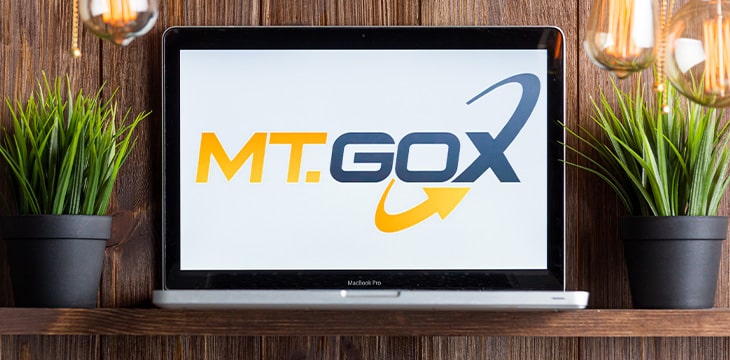|
Getting your Trinity Audio player ready...
|
The Mt. Gox Rehabilitation Trustee announced that the deadline for creditors to register their preferred payment method will be extended to March 10, 2023. The announcement came just four days before the initial deadline of January 10, following a notification sent to creditors last October.
The deadline extension means it will be at least nine years after Mt. Gox disabled all withdrawals that account holders can hope to receive back a portion of their balances. Creditors are hoping the whole affair can finally be settled in a satisfactory manner after years of processes and changes, none of which ever seem to result in a payout.
The rehabilitation process has been overseen by Trustee Nobuaki Kobayashi and the Japanese bankruptcy court. Digital Asset exchange Kraken was originally appointed to handle the payouts but eventually withdrew from the process and from Japan altogether in the years that ensued. Although Mt. Gox is based in Tokyo, a large percentage of its customers reside in countries other than Japan.
As part of the rehabilitation settlement, creditors (mostly Mt. Gox account holders) could choose a first-priority lump-sum payment of a lesser amount than they were due otherwise or to be paid in full from whatever funds remained. In choosing one of these two options, creditors took a gamble on whether the final payout pool would be less than they expected or more.
Later in the bankruptcy process, creditors also gained the option of a payout in fiat currency (with BTC valued at its price in 2014) or a payout in BTC and BCH since Mt. Gox’s closure happened before those two assets split in 2017. Officially, the coins were split into BTC and BCH and sent to separate wallets before BSV gained any regulatory recognition in Japan, meaning payouts in split BSV assets weren’t an option.
Mt. Gox was one of the largest Bitcoin/fiat exchanges in the world when it collapsed in February 2014 and handled most of the trading volume outside China. For many, it was the only option to trade between fiat currencies and Bitcoin, which was still largely unknown to the public. Its creditors (many of whom were revealed in a leaked customer list of names and account balances shortly after) include several of Bitcoin’s earliest users.
Its sudden demise came just months after BTC hit its (at the time) all-time high price of around $1,200 in December 2013. Even rehabilitation payouts of 10-20% could still represent a satisfactory outcome for account holders if paid in digital assets rather than cash, although far from what their total account balances would be worth at today’s (or 2021’s) price values.
Though there have been arrests, speculative theories, and plenty of unofficial investigations surrounding the affair over the years, there have never been any official findings on where Mt. Gox’s Bitcoins went. The exchange suddenly found itself missing between 650,000 and 850,000 BTC in February 2014, forcing its closure.
Some claimed an insider at Mt. Gox was responsible for the hack, while others claimed the coins were gone even before owner and CEO Mark Karpeles took control of the company. There is some evidence the company had tried to trade its way out of its hole by using trading bots to manipulate the BTC price before a large market downturn that began in December 2013.
Karpeles was arrested in mid-2015 and held in custody for almost a year without trial. He eventually faced charges of embezzlement (though not of the missing Bitcoins) and tampering with customer records. In 2020 he was found not guilty of embezzlement but guilty of the lesser charge and sentenced to 2.5 years in prison and suspended for four years. He has maintained his complete innocence over the missing BTC.
Russian national Alexander Vinnik, who had connections to the now-defunct BTC-e exchange, was arrested in Greece in July 2017 and charged with laundering proceeds from the Mt. Gox theft, among other crimes related to digital assets. In 2020, he was extradited to the U.S. and sentenced to five years in prison. Vinnik, who was also wanted for computer crimes in Russia and France, has also been fingered as someone connected to Mt Gox’s missing BTC, although he wasn’t charged with that particular offense.
Watch: Digital Asset Recovery on Bitcoin

 03-04-2026
03-04-2026 




